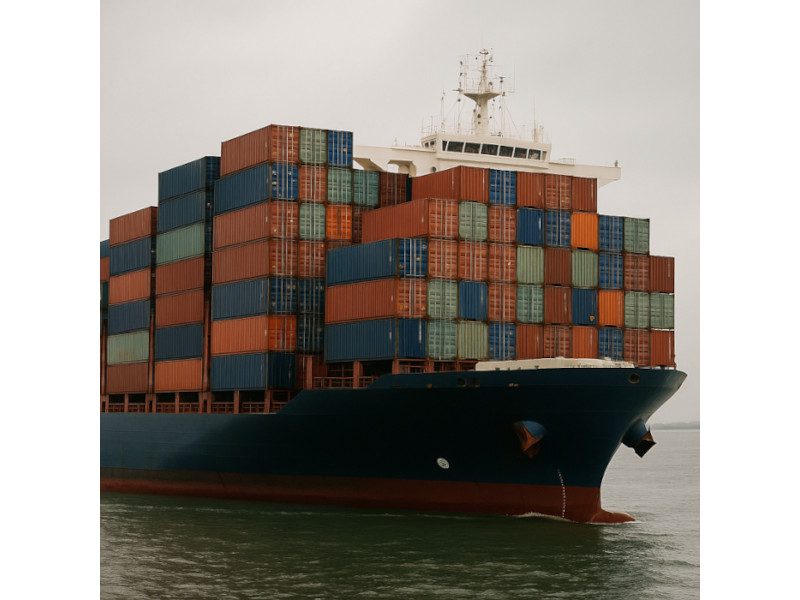Reaching the point of Turnaround
The logistics crisis in South Africa is, without doubt, the ‘perfect storm’, strangling the private sector and trade, negatively impacting the fiscal, causing massive knock-on damage to the nation at large. This is a situation that government now recognises as an ‘Achilles heel’ to the national economy.
Corrective, regenerative focus from collaborative platforms between the public and private sectors to address the situation has started to show progress, but needs to intensify. The road is long and arduous; we are off to a late but reasonable start. The Southern Africa Association of Freight Forwarders (SAAFF) welcomes the opportunity to track and measure progress through its industry leading qualitative Weekly Cargo Movement Report and its commitment to securing sustainable solutions as a dynamic sectoral representative body at the forefront of this critical path.
Significantly, imports and exports in 2023 represented 56.22% of South Africa’s total GDP, down by 8,7% from 2022 – and this in a boom year for mineral resources. The drop obliterated robust trade growth posted in 2022 – a recovery year after the impacts of the COVID-19 catastrophe. In the context of such losses and taking into consideration the serious knock-on impact this has on business across all sectors, it is clearly time for stretch targets in the reconstruction of the logistics network.
South Africa’s freight demand is high, at nearly 500 billion tonne-kilometres*. We need a multi-modal approach to satisfy our freight demand. And at the worst of times recently, the inefficiencies in rail cost us R1 billion a day, while the inefficiencies at the ports amount to a loss of R200 million a day. These numbers are staggering – clearly highlighting the magnitude of the current problems and the desperate need to overturn them.
Where are we currently?
Taking stock of progress since SAAFF’s urgent call to Government on February the 7th last year when the organisation warned of the need for wholesale reform and urgent corrective action to decisively address the crisis in the logistics sector, developments are encouraging and poised to pick up pace in 2024.
The introduction of the National Logistics Crisis Committee (NLCC) came as an important response from Government to Industry and was greeted by a legion of strong, powerful well-vested private-sector partners ready for action – a major step in the right direction.
The NLCC, constituted by Government works to secure stability across the logistics and supply chain arena. Through this forum, the private sector is able to participate and have regular access to a specialist logistics consultative platform that is anchored by cadence and accountability, committed to enabling world-class logistics networks for South Africa. The NLCC work is already making difference. The recovery plan deployed by Transnet in Pier 2, the country’s biggest container terminal, will remove the backlog effectively end of February 2024 as was anticipated in the original plan.
SAAFF Chief Executive Officer Dr Juanita Maree went on record to highlight the importance of Cabinet’s approval and activation of the Freight Logistics Roadmap, saying it would open the way for the revival of a properly resourced, inter-modal, world class logistics network for South Africa and the region. In the short-term, the approval gives traction to the emergency, restorative programme underway to address the current crisis which is further aided by the R47 billion guarantee facility introduced in support of Transnet’s Recovery Plan, the dynamics start to paint a picture.
Where are we going?
Quality in the execution of the plans is critical. When reforms are well implemented, transparent Apex key performance indicators become evident and measurable between marine, waterside, landside, and evacuation of Terminals, enabling South Africa to conduct sound benchmarking against best practice. Introducing in other words, inter and intra port competition – the operational platform that is required for an intact logistic network to support trade and trade growth.
Our call is still out for more practical measures to be introduced as sustainable action to protect jobs and attract investment. Well-managed, functional Public-Private-Partnerships (PPP) have proven successful for both developed and emerging economies across the world. Designed to ensure collaborative work within the ‘SA Inc.’ concept to shape our Logistics network across all modalities. PPP platforms should allay fears among labour groups about job losses and instead predict OPPORTUNITY for job creation.
Excellence as a standard is an absolute requirement. Excellence must define SA Inc.’s Logistics network going forward, in the evolution. For this to become a reality it is essential to be clear on what is required to support trade and trade growth. The Transnet Freight Rail and Ports management crisis begs for reinforcement to be urgently and adequately expedited.
Risk and Reward in the short-term horizon
Transnet is a ‘big ship’, it turns slowly, but turning it is! – guided by the steadfast commitment and solid operational experience of the team under the leadership of current acting CEO Michelle Phillips who, earlier this week again called on government to accelerate private-sector-participation in the dysfunctional state-owned logistics firm [Transnet] saying this action “needs to be put on steroids”.
It is a fundamental truth that logistics is the beating heart of the national economy, the activator of trade, commerce, jobs, skills development, FDI, et-al. In general terms, logistics is the driver of business dynamics, ROI – and has a significant impact on the quality of life in our country.
South Africa has what it takes to fix the problems, improve its logistics base and to turn this moment into an opportunity to uphold its leadership position in the regional and continental context and beyond in the global supply chain where geopolitical and climate driven congestions beg for efficient, alternative routes and trade partners. South Africa has a chance to press reset, to reinvent its position as a founder member of BRICS and at the dawn of the AfCFTA. We need all hands-on-deck!
Read more news and exclusive features in our latest issue here.
Never miss a story… Follow us on:
International Trade Magazine
@itm_magazine
@intrademagazine
Media Contact
Joseph Clarke
Editor, International Trade Magazine
Tel: +44 (0) 1622 823 920
Email: editor@intrademagazine.com







